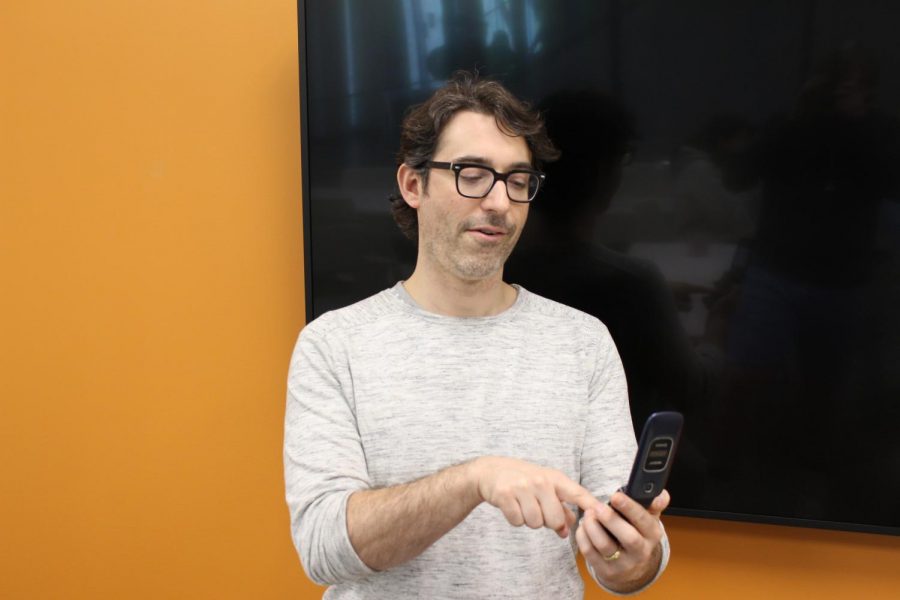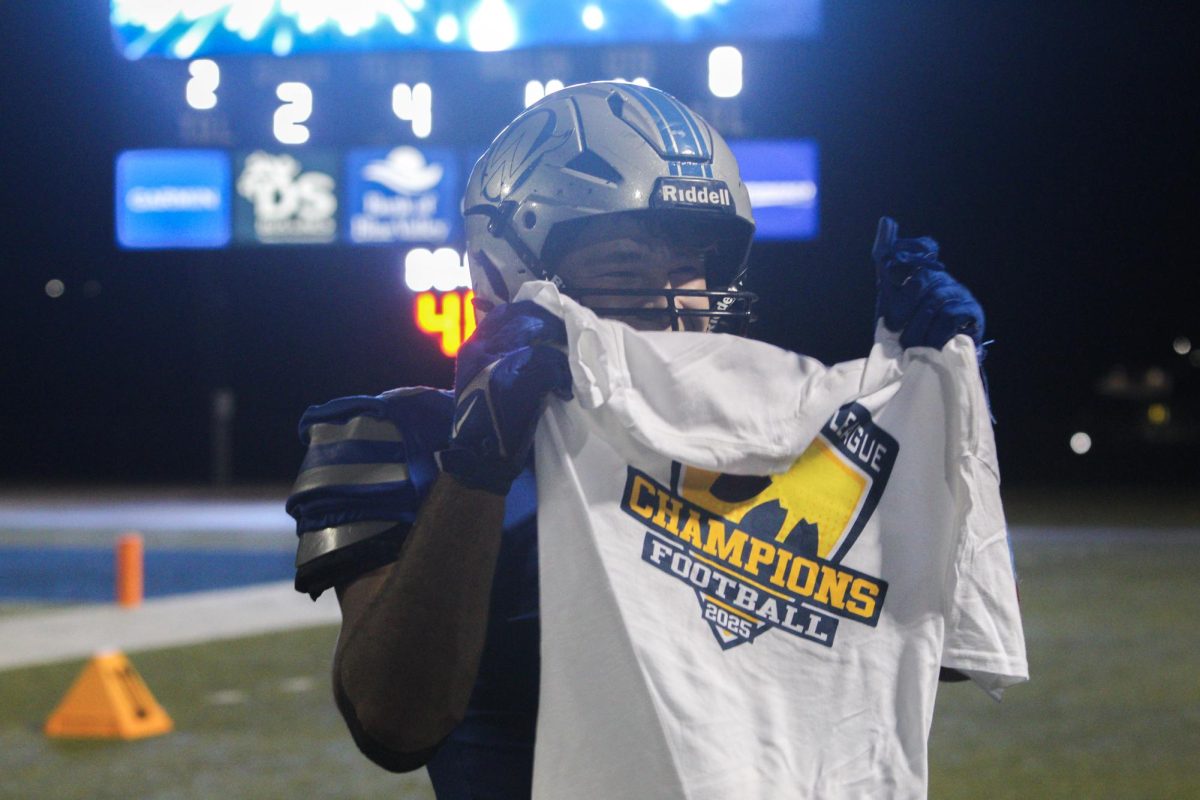Out With the New, In With the Old
English teacher Peter Mishler is bringing back the flip phone for his everyday use, releasing himself from the temptations of a smartphone.
February 21, 2019
The first iPhone ever made was released on June 29, 2007. Since then, the world has seen 10 more generations of iPhones, the most recent being the iPhone X. These smartphones have been in our lives for many years now, and they show no signs of stopping. The average American spends up to three hours on their phone every day.
Well, that stat isn’t for everybody though. English teacher Peter Mishler is doing what some may call “the unthinkable.” As of this school year, Mishler has started using a flip phone. Yes, the one where the screen flips up and where you have to push a button multiple times to text. Mishler just simply wants to get away from the idea of constantly being on your phone during downtime.
“I switched because I was looking at my phone whenever I had downtime or whenever I didn’t have something else specific to do. It became the default action, in place of what would have normally been filled with imagination, or small talk, or thinking, or even just the pleasure of boredom,” Mishler said.
Making the switch to a flip phone means that you no longer have the luxury of just sitting back on your phone. People lose all connection of social media, and a lot of communication gets altered. But that’s what Apple makes products for, so that they’re used. But making the switch means Mishler doesn’t have those things as easy as we do.
“Well, I do miss being able to participate in funny group texts and my wife has to look things up for me that I need to know and we don’t send as many pictures to friends and family now. I guess in that sense, I miss it. It’s funny to discover though how much of that idle time has now been poured into laptop-time. It makes the case that all of Apple’s screen technology is equally immersive and therefore distracting,” Mishler said.
Having made the switch, Mishler has encountered obvious differences in the transition. Yes, he misses some features a smartphone gives you, but that seems pretty normal in the transition. However, that drawback actually makes a benefit he sees more prominent. Without a smartphone in hand, Mishler is able to get a better sense of his surroundings, especially on the road.
“Mostly the functions and apps that I don’t have access to. Although now I know the city way better because I am not navigating it with the help of Google Maps. Or, I should say, Google Maps is not navigating ME anymore. Having to read an actual or digital map has given me a better sense of spatial orientation,” Mishler said.
Now, does Mishler miss these functions enough to switch back to a smartphone? Absolutely not. Mishler made that clear that when asked if he would ever switch back.
“No. Never. For real,” Mishler said.









